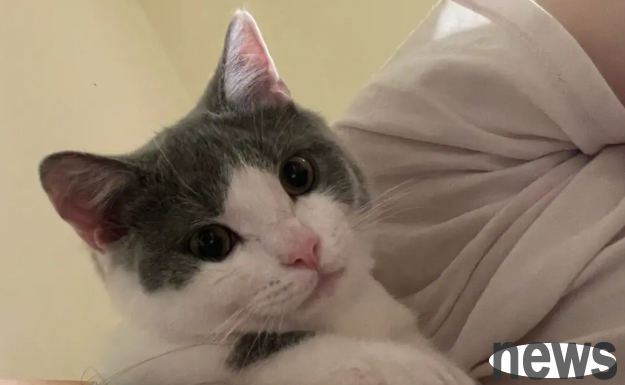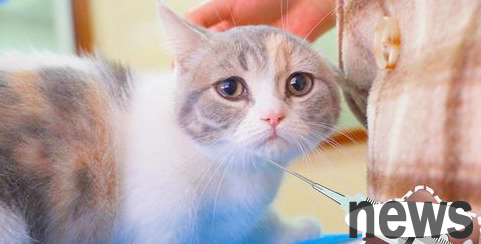Vaccines can help prevent many diseases that affect cats, just like we get vaccinated as children. Vaccines are not 100% protective against disease, but they can indeed improve cats' protection against disease infection.
Some people say that my cat is just home-keeping even if it doesn’t go out. Do you need to get vaccinated? In fact, cats are inevitably going out for medical treatment, going to pet shops, or running out of the house secretly. As long as you go out, there is a possibility of infection. What's more, some domestic cats deal with stray cats through screens, which also has the possibility of infection. In addition, the owner's clothes, hands and shoes may also carry pathogens home, so vaccines must be given, but there are some things you should know about vaccines:

What is a vaccine?
Raising a cat is not that simple. In addition to eating, drinking, deworming, how much do you know about cat vaccines?
Vaccine is helpful to prepare the body's immune system to fight the invasion of pathogenic microorganisms. Vaccines contain antigens, and when the vaccine is introduced into the body, the immune system is slightly stimulated. When a cat is exposed to a real disease, his immune system recognizes and completely resists it or reduces its severity.
Core Vaccine and Non-Core Vaccine:
The American Association of Feline Doctors divides vaccines into core and non-core categories. Core vaccines are considered to be crucial for all cats (the vaccine corresponding to pathogens that are highly risky to cats) and can prevent leukopenia (female distemper), cat calicivirus, feline herpes virus type I (rhinotracheitis) and rabies. The combination of the first three vaccines is the common "cat triad".
instead of core vaccine choices are based on the lifestyle of the cat (distribution of pathogens in different regions/countries/environment): including feline leukemia virus, feline HIV, feline infectious peritonitis virus, feline Chlamydia, bronchial sepsis Borneliacetemia vaccine.
When will kittens start vaccination?
If the mother's immune system is healthy, kittens will automatically receive antibodies from their mother's colostrum. Before the kitten's own immune system develops, immunoglobulins in colostrum help prevent infectious diseases. The antibodies in this colostrum are called "transition antibodies". Transition antibodies will slowly begin to decline 50 days after the kitten is born. Therefore, when a kitten starts vaccination when he is about two months old, it is recommended to get a cat triple at 8, 12 and 16 weeks to allow its resistance to last. (If adult cats have never been vaccinated, they should also be vaccinated according to the normal vaccination procedures.)
Under what circumstances should the delay in vaccination:
The week after the vaccine injection will reduce the cat's physical resistance and will slowly rise after a few days. Therefore, before getting a vaccination, you must first confirm the cat's health.
If the cat has the following conditions, it is necessary to delay the injection of the vaccine.
· Poor appetite or vomiting
· Diarrhea, discomfort or dehydration
· Abscess
· Upper respiratory infection
· Urinary tract infection
· Severe trauma
· Before major surgery
· Early pregnancy
· Kitten before travel or just received home
· Having a history of allergic reactions
· Elderly cats, general antibodies are sufficient
· Do not receive the same vaccine with other vaccines, what symptoms will occur?
? Most cats have no adverse effects on vaccination. If a cat experiences facial edema or vomiting and diarrhea on the day of the injection, it may be the so-called acute allergy. The cat should be taken back to the hospital for treatment immediately, but the probability is very low. Vaccine responses are usually mild and transient.
· Fever
· Sluggish
· Loss of appetite
· Vomiting
· Diarrhea
· Swelling and redness around the injection site
· Limpness
If the above conditions last for more than five days, you should contact your veterinarian. Are there any risks for the
vaccine? The
vaccine gently stimulates the animal's immune system to stimulate protection against specific infectious diseases. This stimulation can produce mild symptoms, ranging from pain at the injection site to fever and allergic reactions. There are other less common side effects, such as injection site tumors and immune diseases associated with vaccination. That is to say, although the vaccine has saved countless lives and played a crucial role in the fight against cat infectious diseases. But like any medical method, side effects and risks exist. In most cases, the risk is much less than the risk of the disease itself.
Therefore, before getting vaccinated, you need to pay attention to the cat's physical condition and communicate with the veterinarian about the cat's medical history.

Do pets have to be vaccinated every year?
We all received a lot of vaccinations when we were young, but we stopped getting vaccinated after adulthood. However, under the control of the habitual suggestion of "vaccination every year", our cats can live until they are old. Our cats can't afford such a vaccine at all. You can use logic to sort out the following three points:
First of all, the effective cycle of the vaccine is much greater than one year, and there is no scientific evidence that you have to get vaccinated every year. The current vaccine injection is not a regulation, but just the so-called "veterinary advice." There are two obvious reasons why veterinarians recommend this. One is of course interest. The same vaccine is given every year. In terms of the current huge number of pet cats, how temptation is such a profit-driven? Everyone has seen "I am not a medicine god." Secondly, medical research is expensive, and long-term research on animal immunity lacks a lot of financial support. Even if the veterinarian has the conscience and courage to say that he does not need to be vaccinated every year, he will inevitably be cheated by some people who cause cats to get sick due to their negligence.
Secondly, the amount of vaccine injections is not adjusted according to the cat's body size.. Get vaccinated every year, get the same vaccine at 4 catties and get the same vaccine at 8 catties. Big cats and kittens are the same. This makes no sense from a logical level, let alone how much the cat's own immune system is to be consumed every year. In fact, human society has had a lot of discussions and differences due to the vaccine issue, and most of them are related to the disadvantages of "overvailing".
Finally, there are many cases where excessive vaccination can cause a series of serious health problems. Especially in the immune system, it includes allergies, epilepsy, anemia, and cancer.
So how should cats get vaccinated:
What cats must be vaccinated is the core vaccine, that is, "Cat Triangle" (mentioned above), and at the same time, whether to inject rabies vaccine according to local laws. (If you don’t go out in the home, you don’t have any bats in the home and you don’t need to get rabies vaccine). Other healthy cats with no special needs for non-core vaccines are not required and should not be injected. Then, every three years (or more frequently), the number of antibodies against feline viruses will be tested/titer tests. If the number of antibodies to feline viruses is insufficient, the vaccine will be given. Take cats for regular medical examinations and do not be superstitious about vaccines.
In addition, in terms of immune effect and long-term health of vaccine types, low-toxic/weak live vaccines are significantly better than inactivated vaccines, but they are more dangerous to weak animals in the short term. Cat plague test strips can be used to test the effectiveness of the vaccine. A weakly live vaccine that has not failed can make the test strips positive. If there is no response, do not inject it.
Finally, I talked about a cute little question. Can I take a bath for the cat after the injection? For vaccination, it is simply a "shadow of childhood" memory. I got so many vaccines when I was a child, so you must remember that you can’t take a bath after getting the vaccine.
Similarly, cats should reduce the irritation to cats within one week after they are vaccinated. Try not to take the cat out or go to a pet shop to take a bath, because the cat's immunity will decrease this week and will only increase slowly after a few days. If you are exposed to pathogens at this time, the cat will be more likely to get sick.
